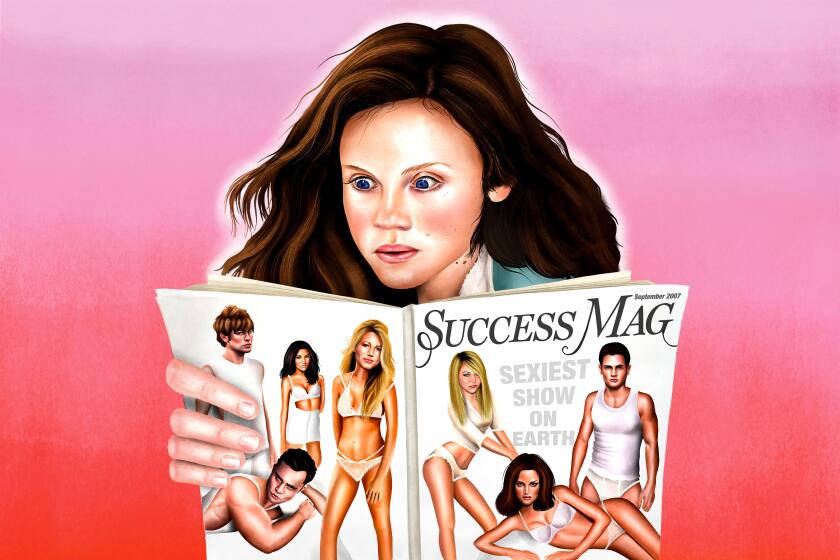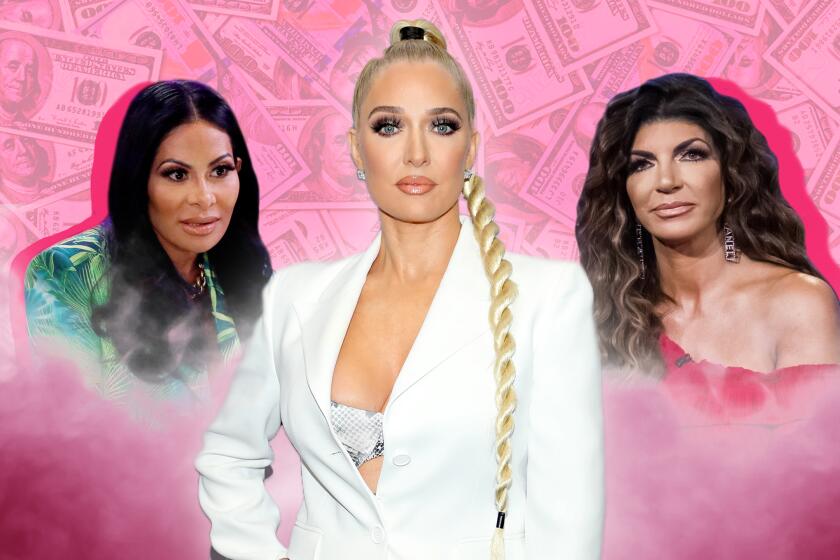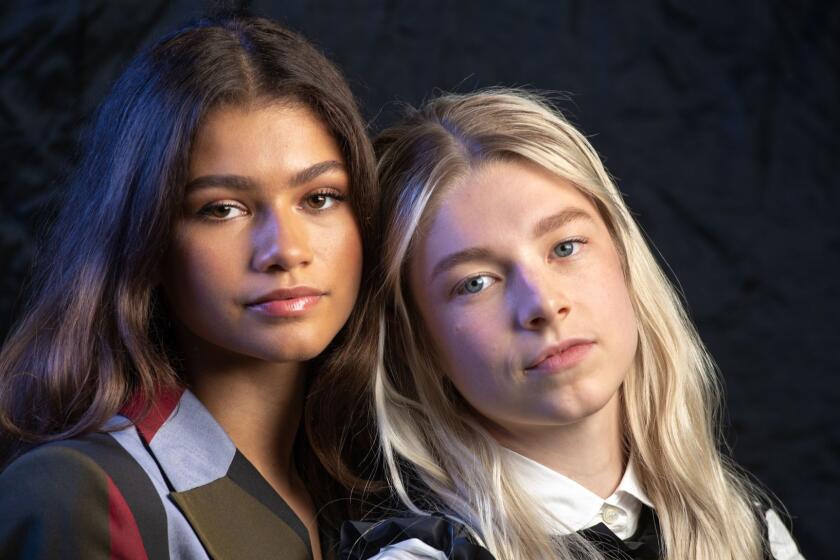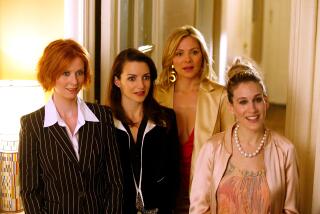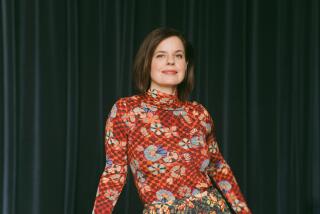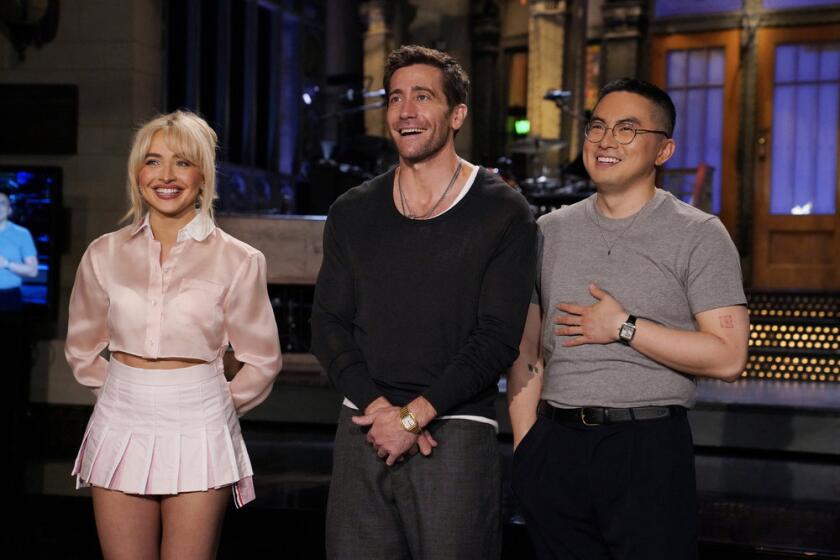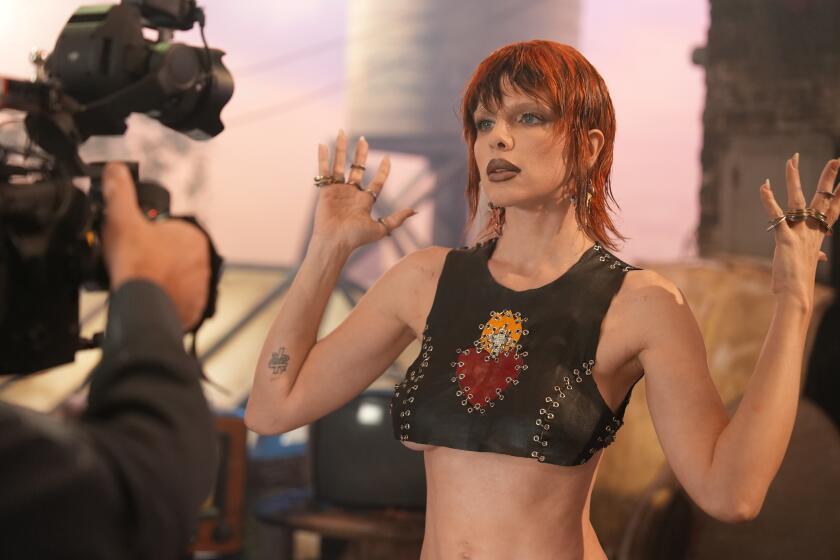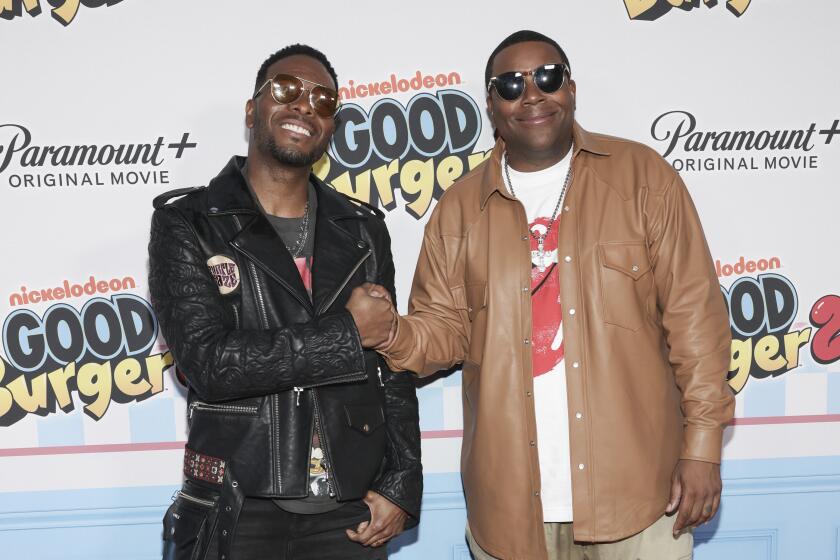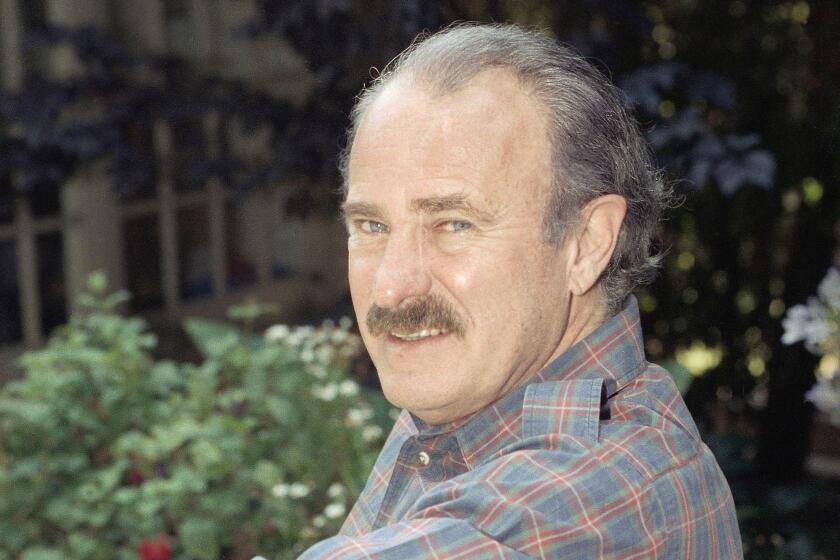What made ‘Gossip Girl’ a phenomenon is sorely missing from the reboot
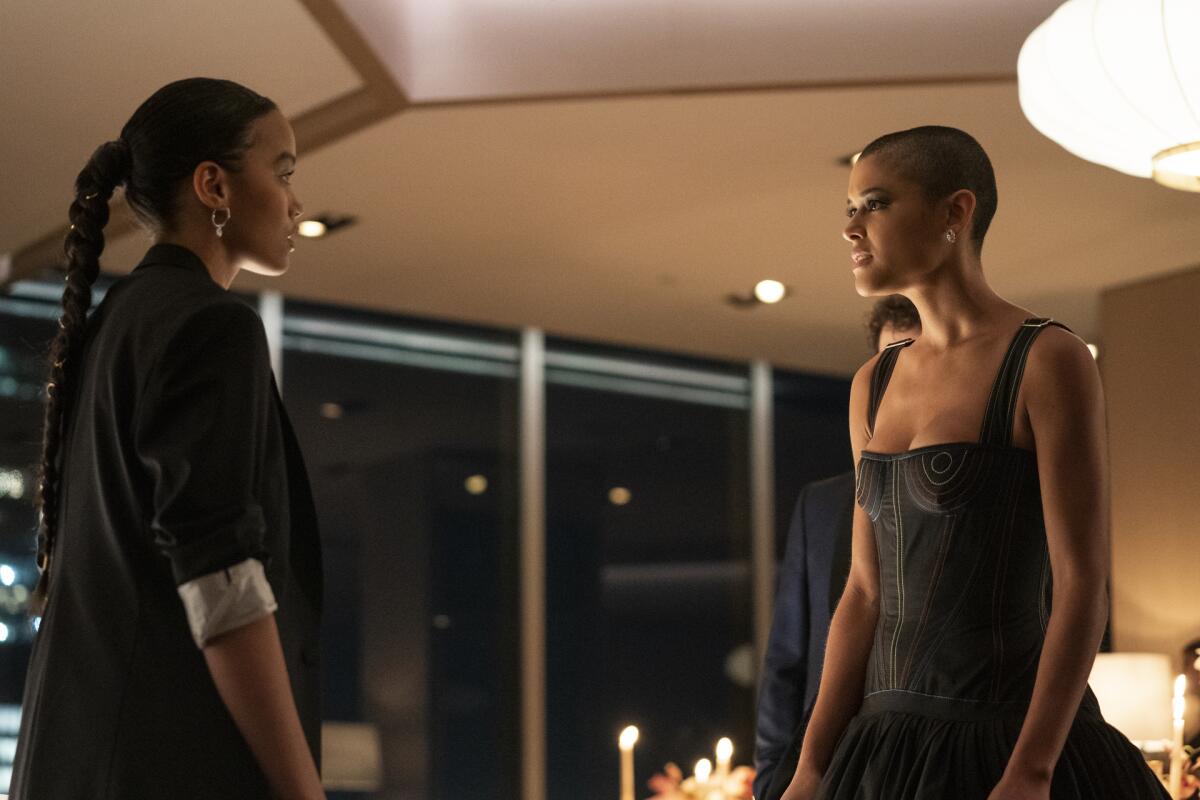
“Gossip Girl,” which relates the adventures of young New York socialites, is back, dressed in all the finery HBO Max has calculated it’s worth springing for (quite a bit). As home, via plain old HBO, to the celebrated “Euphoria” — another glossy drama involving teenagers, drugs, sex and cussing — and with a revival of Freeform’s “Pretty Little Liars” in the works, the premium streamer seems to be staking a claim in the field of young adult television, emphasis on the adult. (You can watch all six seasons of the original “Gossip Girl,” which ran on The CW from 2007 to 2013, on HBO Max as well.)
To say that the original was an implausible cornball melodrama elevated by the soulful charisma of its frenemy leads — Blake Lively‘s Serena and Leighton Meester’s Blair — is only a dig if you have something against cornball melodrama. (It was “Dynasty” in teen couture.) But this “Gossip Girl” is not as powerful a charm machine as its predecessor, even with first-series writer and executive producer Joshua Safran in charge. Perhaps it’s too aggressively glamorous: Expensive corn can seem like overkill, where a more modest production can read as authentic even when the story is ridiculous. Or perhaps it’s that the new show, which premieres Thursday, too often seems to take itself as seriously as the characters take themselves. One of the advantages of the original is that it’s obviously a comedy, and fun.
I thought I remembered why I didn’t get cast in “Gossip Girl.” But the truth was much more complicated.
It’s 2021, New York has shaken off the sleep of a pandemic year, and the kids — to use the term loosely, considering the age of the actors who play them — are back at Constance Billard School for Girls and its brother academy, St. Jude’s. And once again, an alpha clique is regally ensconced at lunchtime upon the steps of the Metropolitan Museum of Art.
Characters and relationships have been not so much newly imagined as cut up and reassembled, so even things that are kind of different are sort of the same. Julien (Jordan Alexander), the queen of all she surveys, is a little reminiscent of status-conscious Blair, with her two constant attendants (Zión Moreno and Savannah Lee Smith), more self-promoting than sycophantic. She’s an Instagram influencer who does a little high-profile modeling on the side, though it would be more accurate to say that she goes to school on the side.
At the same time, she is a little bit of a Serena, trying to be good and real — “What if who I am when I wake up is me at my best?” Julien will eventually wonder — and willing to brook her friends’ disapproval by introducing Zoya (Whitney Peak), a freshman nobody from Buffalo, into their circle. Well, come close and let me tell you: It turns out that they are half-sisters, Julien’s mother having left her father (Luke Kirby, rich) for Zoya’s father (Johnathan Fernandez, not rich), freshly united through a “Parent Trap” contrivance.
As excited as they are about their new relationship, it does not take much to open rifts between them, or between any two characters for that matter. And so the action is packed with unintentional slights and misunderstandings that could be cleared up if someone just asked a question. But while it’s discord that keeps the stories moving, what keeps them palatable are the passages when characters, however briefly, are in harmony.
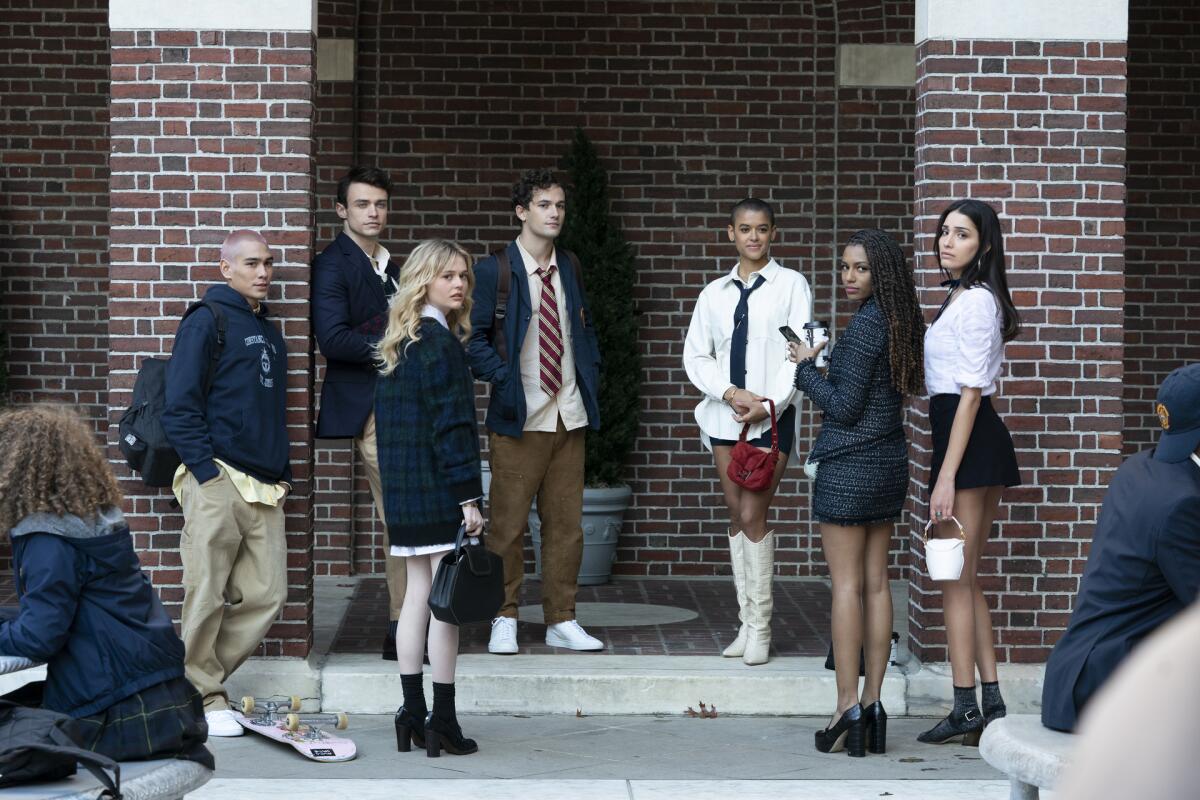
Also on the museum steps are Obie (Eli Brown), Julien’s mismatched boyfriend, the good-hearted son of wicked real estate developers; Audrey (Emily Alyn Lind) and Aki (Evan Mock), a likable couple, who, notwithstanding their mutually pledged love, have misplaced the zing in their relationship; and Max (Thomas Doherty), a sprig of hemlock whom old “Gossip Girl” viewers will recognize as a Chuck Bass, a bored troublemaker, always taking drugs and plotting seductions and being a bad influence on others. He is superficially a character you love to hate, but that he is hurting inside you will not have to wait long to discover.
The performances range from subtle to … less subtle. (The New York acting pool brings the gift of Laura Benanti as Audrey’s mother, who is going through some things.) If the new iteration stays true to its model, and sticks around long enough, they will surely all date each other at some point. And “date” is another word I use loosely.
Bravo’s glittery reality franchise has always encouraged competitive consumption. But cast members’ financial ‘smoke and mirrors’ can lead to trouble.
As regards Gossip Girl itself — “Your one and only source for the truth behind the scandalous lives of New York’s elite” in the past and present construction — the twist this time is that a group of teachers, feeling disrespected and powerless, revive the old blog (“kind of like an Orwellian big sister,” says someone who was there) as an Instagram account and instrument of social control. (In the original, the identity of this teenage Liz Smith remained a not particularly pressing mystery until the final episode.) Once again the posts are read by Kristen Bell, whose return guarantees baseline credibility, like Mark Hamill in one of those later “Star Wars” films.
“It took me an hour to pick out an outfit they wouldn’t make fun of,” says teacher Miss Keller (Tavi Gevinson), the project coordinator, having had her outfit made fun of. (The joke within the joke is that Gevinson got famous as a preteen for her fashion blog, Style Rookie, back in the late aughts.) “I thought [the voice] would be simple but it’s not,” she complains. “It’s incredibly specific, OK? E.M. Forster got roofied by Dorothy Parker and Jacqueline Suzanne. I mean, it takes focus and determination.”
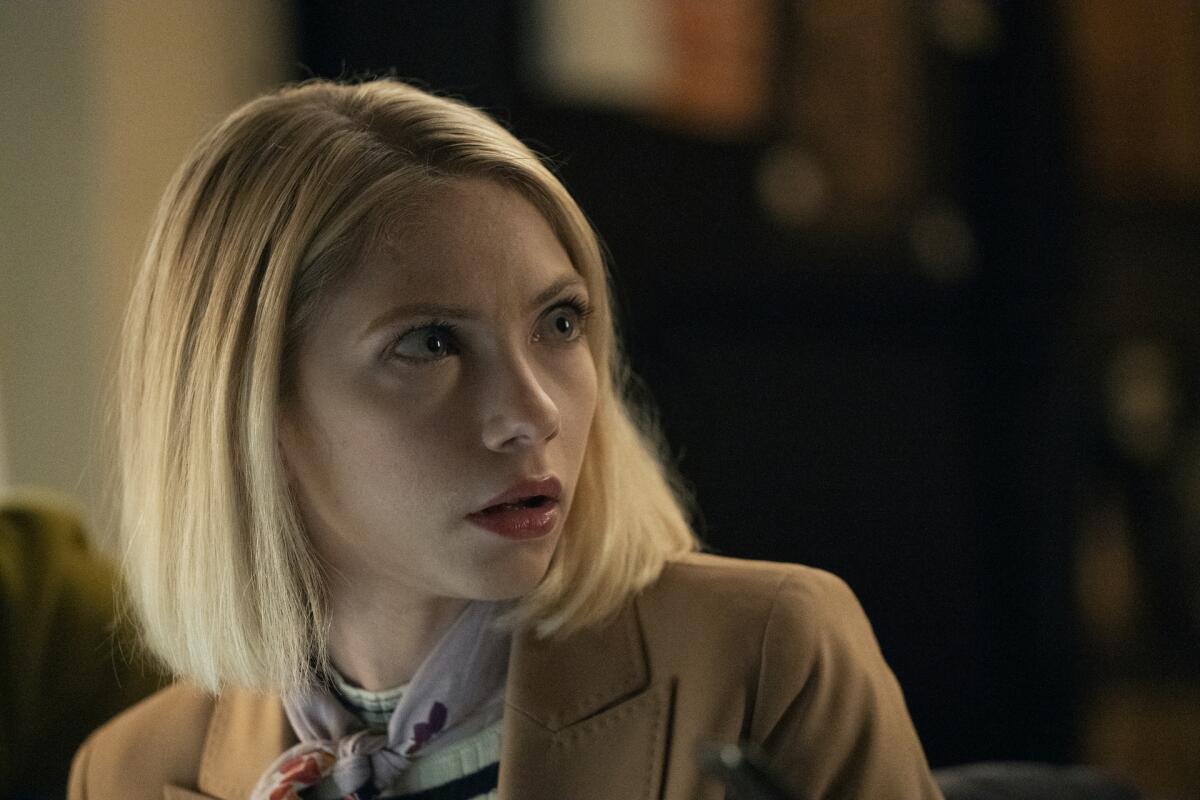
Still, the notion that public exposure of their antics will somehow steer these rich young rowdies toward responsibility and respect feels quixotic, given that public exposure is the air they breathe. Traditional notions of privacy and public decorum had crumbled well before “Gossip Girl” came along, and though social media is explicitly involved in the drama, stories in which characters alter their behavior because they are “losing followers” are already as old hat as ... hats. As before, they’re going to do what they’re going to do, whatever an anonymous blogger or social media account has to say about it.
Here are some lines from the show, presented without context: “People do not like to see how similar you are to them; they click precisely for the perverse pleasure that comes from worshiping someone they can never be or have.” “Vulnerability is a disease of the masses.” “Nobody causes drama on someone’s birthday — have you watched Bravo?” “This is the land of schadenfreude on Adderall.” “Coups are the only way to really gain control.” “Now that she’s verified, if she posts it, people might believe it’s true.” “Most people cancel themselves if you dig back far enough.” If this does not tell you everything you need to know, it’s a good 30%.
“Nobody is getting their head cut off,” Zendaya says.
As one would expect in 2021, especially in a series pitched to youth, new “Gossip Girl” is ethnically and sexually diverse. There is a metafictional throwaway joke about the whiteness of the 2007 series, which is fairly blinding when you look back on it, and in one scene Zoya, who is Black and dreams of attending what will formerly be known as the Yale School of Drama by the time she gets there, suggests to a white grownup that the purpose of theater is “to challenge audience members to think beyond their narratives.”
At the same time, mentions of “the patriarchy” do not lead to plot lines about smashing the patriarchy so much as they reflect adult writers’ awareness that the patriarchy is something a smart teenager might inveigh against in a television show to the pleasure of its audience. Obie bonds with Zoya over social activism, but in the four episodes available to review, this amounts literally to wearing badges and delivering some donuts to a picket line. I am fairly certain that we are not meant to take their awareness merely as wokeness, but class divisions matter less here than admiring the shiny baubles. A very minor character gets to observe that “privilege and power, no matter how amoral, will always win in the end,” but he has neither and is gone from the show almost as quickly as those words are spoken.
The first “Gossip Girl” was a phenomenon, a show in which the mayor, a New York Times theater critic, a Real Housewife, a famous fashion designer or pop singer were liable to drop in as themselves. To be sure, phenomenons are harder to come by these days, as content overload and paywalls slice the audience into thinner portions; all you needed to watch the original version was a television. So far the new model feels insubstantial — casually diverting, full of shiny, pretty people, but short on chemistry where we are meant most to find it.
But let the people speak, and we will talk again.
‘Gossip Girl’
Where: HBO Max
When: Any time (the premiere also airs 8 p.m. Friday on The CW)
Rating: TV-14-DLS (may be unsuitable for children under the age of 14 with advisories for suggestive dialogue, coarse language and sexual content)
More to Read
The complete guide to home viewing
Get Screen Gab for everything about the TV shows and streaming movies everyone’s talking about.
You may occasionally receive promotional content from the Los Angeles Times.
